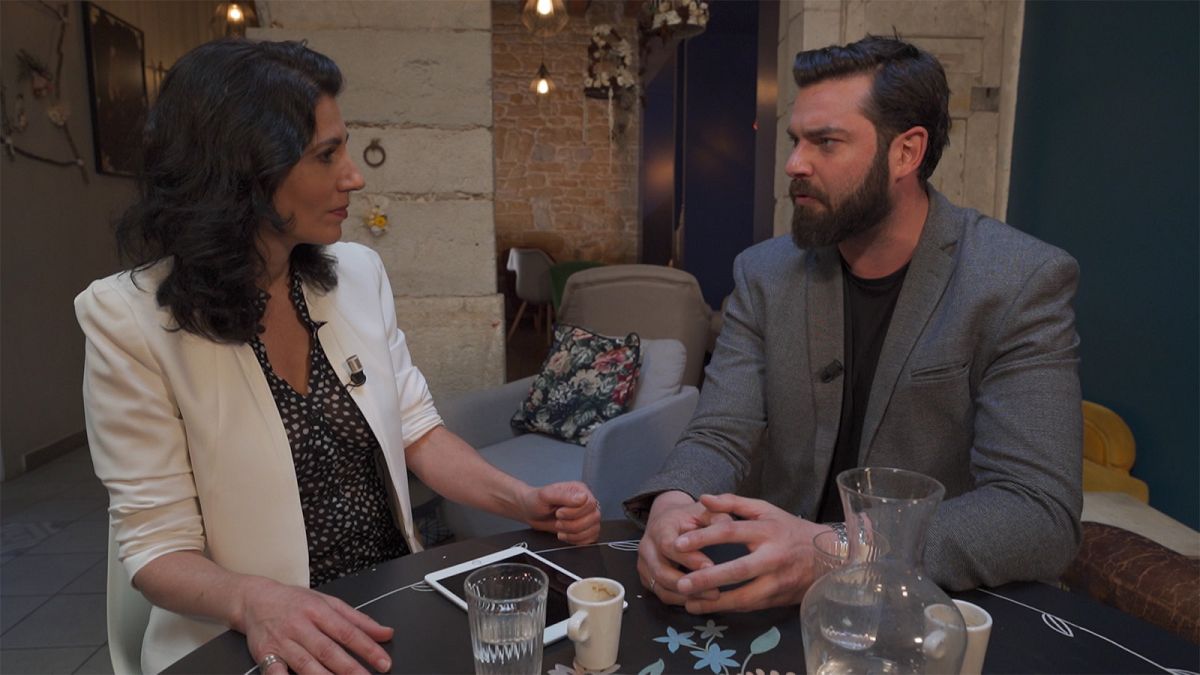Why has Chemnitz gained a reputation for being a hotbed of extremism?
In our latest episode of Insiders, Unreported Europe, we visited Chemnitz in Germany. The city has gained a reputation for being a hotbed of extremism. But why is this? Insiders’ Sophie Claudet and Ayman Oghanna sat down to discuss the rise of Germany's far right.
Sophie Claudet: So Ayman, there were no riots or violence whilst you were in Chemnitz, it’s a far cry from what we saw last August. Do you think it’s gone back to normal?
Ayman Oghann: Not quite. The streets may be quieter but there are instances of the far right appearing quite strong in Chemnitz, hate crimes, for example, are on the increase in Chemnitz in particular and in Saxony in general. And groups like the Chemnitz football club’s ultra group are known to have neo-nazi ties and have been bolder in the way that they express themselves. On the other hand, a lot of people in the city are tired of this reputation they have of being a far-right city and I think it’s fair to say that the majority of people there aren’t far right supporters.
Sophie Claudet: Now the AfD, Germany’s far-right party, is it enabling or even colluding with extremist neo-nazi groups?
Ayman Oghann: The AfD are often accused of having ties to neo-nazis, but it’s something that they vehemently deny. One thing that is undeniable, however, is that as the AfD has risen over the last three years, so has the boldness of far-right extremist groups and also, in terms of political discourse, the center now talks about ideas, xenophobic ideas, ideas about nationalism, about Heimat, about homeland that were taboo until recently. So I think that the political center is shifting a little bit towards the right.
Sophie Claudet: But is this not happening in other Western democracies and surely in Eastern Europe as well?
Ayman Oghann: Sure. It’s happening all over Europe, the rise of the right, but it’s particularly poignant and alarming in Germany, however, because of obviously the country’s dark history with fascism and also its dominant position on the continent.
Sophie Claudet: Now, we have one of your characters saying that there are historically different takes on being a German in eastern Germany and in western Germany. That it is okay to be proud to be German to be nationalistic about Germany. Now is it fair to say also that the right and far right is more prominent in eastern Germany than in western Germany?
Ayman Oghann: Absolutely. The numbers prove it. The AfD and other parties like it poll much higher in the east than in the west, as to why the east is more prominently right? There’s a lot of reasons. Economically, the east has been far less prosperous than the west, one idea I found intriguing, however, is this idea of a crisis of masculinity and male identity in the east. After the Berlin Wall fell, East Germany lost 10 percent of its population and two-thirds of them were women traveling to the west for work and this left behind, literally and metaphorically, a lot of angry white men who didn’t really have a place in the new Germany.
Sophie Claudet: So do we have a case of raging testosterone in eastern Germany?
Ayman Oghann: I don’t think it’s as simple as that, I think it’s a multilayered answer, but I think part of the puzzle might be the place of the east German man in German society.
Sophie Claudet: And women did move to western Germany, or some of them at least, why didn’t men follow suit?
Ayman Oghann: Communism was quite successful in creating a broad class of independent, emancipated women who were often better educated than the men and found it easier to find work in the west than the east German male labourers they left behind.
Sophie Claudet: Do you think AfD will make strides in the European elections?
Ayman Oghann: I think they will. But one thing we should not overlook is that it’s not just them. I was surprised in Chemnitz, how many Green supporters and Green activists I met and while it might be true that Germany’s political center is collapsing a little, it’s not just the far right who gains. Parties like the Greens are gaining support too.
Sophie Claudet: Okay, well we’ll find out soon, won’t we?
Ayman Oghann: We will see.
Sophie Claudet: Well thank you for watching Insiders, Unreported Europe. We will be back soon.
